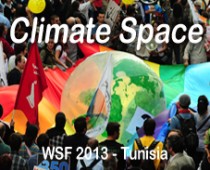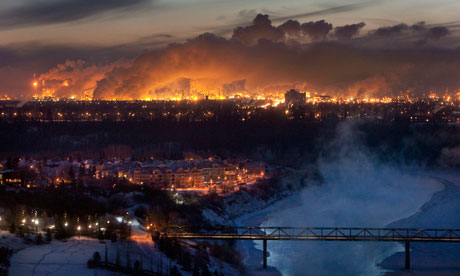The South African Civil Society Information Service

This week the latest round of climate negotiations, the 19th Conference of the Parties (COP19) is meeting in Warsaw Poland, to grapple with the stalled Climate Change Convention. At the opening of the conference Dr Alicia Illinga, a Filipina delegate highlighted how her country had already been hit by 22 typhoons this year. The devastating Typhoon Haiyan, the most powerful typhoon to have ever made landfall, hit the Philippines on the eve of the conference, causing over 10 000 fatalities and affecting up to 10 million people. Climate change is implicated in these events, despite ill-informed denials. Natural weather disaster costs are at record levels. So why are we so slow to take action on climate change?
12 Nov 2013

Picture credit: cuipo
This week the latest round of climate negotiations, the 19th Conference of the Parties (COP19) is meeting in Warsaw Poland, to grapple with the stalled Climate Change Convention. At the opening of the conference Dr Alicia Illinga, a Filipina delegate highlighted how her country had already been hit by 22 typhoons this year. The devastating Typhoon Haiyan, the most powerful typhoon to have ever made landfall, hit the Philippines on the eve of the conference, causing over 10 000 fatalities and affecting up to 10 million people. Climate change is implicated in these events, despite ill-informed denials. Natural weather disaster costs are at record levels. So why are we so slow to take action on climate change?








.jpg)









